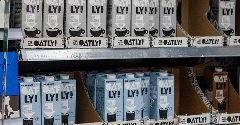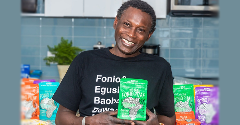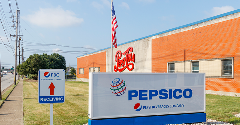News
Are Dutch supermarkets committed to human rights?
3 Jul 2023Dutch supermarkets lack widespread measures to respect human rights in supply chains, research project Superlist Social's inaugural report finds.
Superlist Social, a multi-year research project that gathers insights on how supermarkets help their customers eat healthy, sustainable and fair food, has released its Superlist Social 2023 report.

Analysing the actions of seven Dutch supermarkets, including Aldi and Lidl, the report found that none of the supermarkets demonstrated far-reaching measures for respecting the human rights of those in their supply chains. The research states the supermarkets have yet to properly safeguard human rights in food production chains, and concrete actions to protect workers’ rights, farmers and women are, on the whole, missing.
Building a fair food system
“A fair food system is a system that enables farmers and workers to earn a decent income, shape their future, and produce in balance with nature by working throughout the whole supply chain to make sustainability the norm,” Heske Verburg, spokesperson and director at Solidaridad Network, one of the research contributors, told Ingredients Network.
In the report, researchers recommend several concrete actions to create a fairer food system. “Retailers need to start working together on strategies which improve and stabilise producer prices,” says Verburg.
Recommendations call for supermarkets to conduct human rights impact assessments in all relevant high-risk supply chains. Supermarkets are also called to publish an action plan and report on their progress in mitigating identified risks.
Limited progression
While it is good that retailers take first steps to address human rights issues and value distribution in their value chains, Verburg says, “we urge them to step up their game and speed up the progress”.
Several drivers are behind supermarkets’ limited concrete actions. There is a widespread fear of higher costs. Costs of sustainable production can be higher but often also create a profit, savings or better quality. Costs and returns of sustainable investments depend very much on the specific supply chains and their circumstances.
Unfair trading is another core area where action is vital. “Supermarkets are not transparent about how they eliminate unfair trading practices, nor if they actively engage in fair purchasing practices,” says Verburg. In their research, that none of the supermarkets indicates whether and how they do this.
"Retailers often cite the lack of consumer interest and their reluctance to pay for sustainability as a reason for not taking action to respect the rights of workers, farmers and women,” she says. Suppliers of supermarkets don’t have sufficient, sustainable products on offer. “Supermarkets should use their influence to change this.”
A lack of communication and consistency exists too. Retailers in the global north often need direct contact with producers in the global south. Most retailers have only started mapping their supply chains in recent years and so are only now starting to understand their purchasing practice’s impact.
Due diligence is critical
Commenting on whether there are any unexpected results from their research, Verburg says: “It is surprising that even with (upcoming) European and national legislation on corporate due diligence, the retailers are not yet fully up to speed with mapping their supply chains and conducting due diligence.”
“The Human Rights Impact Assessments are limited to only a few high-risk commodities, and it is questionable if this will be sufficient to meet due diligence requirements.”
Laws and leadership can help or hinder the implementation of human rights. Updates need to occur to enable concrete actions and, ultimately, achieve a fairer food system.
“The due diligence legislation process in the Netherlands is stalled.” Parliament has proposed a law, but Verburg says, “The government, in line with industry requests, wants to wait for the EU CSDDD to be finalised”.
The European’s Union’s (EU) Corporate Sustainability Due Diligence Directive (CSDDD) aims to develop sustainable and responsible corporate behaviour and make human rights and environmental considerations a core component of companies’ operations and corporate governance. As the EU CSDDD has to be implemented by national legislation, every EU Member State has to draft their legislation, too.
 © AdobeStock/luckybusiness
© AdobeStock/luckybusiness
In Germany, national due diligence legislation is already in place. Retailers with headquarters in Germany that took part in the research ranked high in the study. For example, Lidl took first place, while Aldi came third.
“It is likely that the legislation is driving and helping them to implement their responsible purchasing practices,” says Verburg. “As such, we call on other national governments to not delay their legislation processes.”
Opportunities to increase fairness in food
Legislation is critical to creating a fairer food system. “However, we need to ensure that legislation will be smallholder inclusive,” says Verburg. “It is essential that living wages and living income are part of companies’ responsible purchasing practices.”
Living wages and income, therefore, need to be enshrined in the EU CSDDD and national legislation. In response to legislation, retailers and their value chain partners must take responsibility for fair value distribution. They can do this by focusing on living incomes, wages, and responsible purchasing practices to reduce poverty among smallholder farmers. Additionally, they can create lasting trade relationships.
Retailers and value chain partners can also ensure rights holders’ engagement and active collaboration in all human rights and environmental due diligence processes.
Related news

The functional ingredient wave changing grocery retail as we know it
23 Jan 2024
Supermarket shelves are adapting to account for consumer demand for functional ingredients including in some surprising categories. Think collagen breakfast cereal and melatonin-infused sparkling water, says Brandon Casteel, vice president of partnersh...
Read more
UK High Court allows Oatly to use 'milk' on packaging
17 Jan 2024
Oatly has scored a landmark victory in the use of the word milk after the UK High Court ruled against the country’s dairy industry and permitted the term to be used on packaging.
Read more
Alt-protein dip not enough to distract consumers from meat replacement realties
12 Jan 2024
Despite a recent downturn in alt-protein’s fortunes, consumers haven’t lost faith in the idea of cultivated meats and plant-based food becoming a permanent fixture in diets of the future, according to Alex Mayers, managing director of the Good Food Ins...
Read more
Supergrain fonio expands its reach in US market
11 Jan 2024
More US consumers will find nutritious, climate-smart grain fonio in supermarkets thanks to a new distribution structure for the import’s most prominent commercial brand, Yolélé.
Read more
PepsiCo to reshape convenient foods portfolio with less sodium and more plant proteins
10 Jan 2024
PepsiCo has revealed details of two nutrition goals that look to reduce sodium and boost consumption of legumes, whole grains, and plant-based proteins as part of the multinational’s expanded convenient foods portfolio.
Read more
Supermarkets innovate with private label plant-based ranges
9 Jan 2024
Plant-based product ranges are an important part of retailers’ private label innovation efforts – and represent an important way for supermarkets to reduce their environmental impact.
Read more
‘Healthy’ additives make ultra-processed foods more appealing
4 Jan 2024
Almost three-quarters (74%) of Americans would try an ultra-processed food if it provided a health benefit such as better sleep, better immunity, or increased energy, according to an industry survey.
Read more
South-East Asia: Renewed interest in sports nutrition products
19 Dec 2023
South-East Asia’s renewed focus on the elderly has also given rise to an emerging sports nutrition sector that serves to address similar health issues such as immune support and bone and joint health.
Read more
Coca-Cola: Artificial intelligence could help vet open innovation partners
18 Dec 2023
Artificial Intelligence (AI) could have a role to play in selecting startups and projects that corporates work with in open innovation partnerships, said Faisal Zanjani, global head of open innovation at The Coca-Cola Company, at Fi Europe.
Read more
Colombia introduces tax on ultra-processed foods
7 Dec 2023
In a bid to curb rates of obesity and other non-communicable disease, the Colombian government has introduced a tax on various ultra-processed food (UPF) and drink products.
Read more